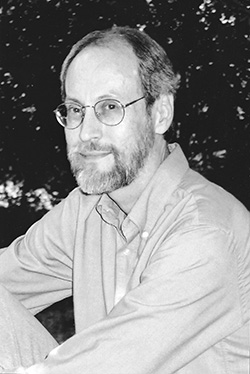|
I started submitting stories to literary journals when I was in the MFA program at the University of Arkansas. I was twenty-seven, and like most young writers, I was in a hurry to start publishing. "If you don't make it by thirty," one of my writing teachers used to say, "you're not going to make it."
When I look back on that time, it seems silly to me that I even for a minute believed that dictum about the age of thirty being the point of no return. I think, instead, of Isak Dinesen, who once said, "I write a little every day, without hope and without despair."
I've passed this excellent advice on to my students for years, trying to impress on them the importance of falling in love with their craft and finding their pleasure in their daily work. If you're really a writer, as opposed to just wanting to be one, you're dedicated to the work for the joy of it. You make it a part of the life you choose to live. Whatever happens from that point on happens. If you publish, fine. If you publish a few pieces and then stop, fine. If you never publish? Well, even then you still have this thing you love, this thing you do every day because it's so richly connected to your identity and the way you process the world.
Of course, I didn't believe any of this when I was starting out. I was, as I said, in a hurry. I wanted to make things happen, so in my stories I did just that. Another one of my writing teachers told me that he'd come to know that sooner or later in my stories an elephant was going to appear and then everything was going to go to hell. Not a literal elephant, mind you, though even that wouldn't have been beyond me, because I was on the lookout for the strange plot twist, the exotic, the grotesque, the sensational. I gave little thought to character motivation and consistency. If I wanted someone to buy an elephant from a traveling circus (no, I never had that happen in a story), I'd, by God, find a way to make it happen.
"Make it memorable," the editor of a respected literary journal told me when he came to visit Arkansas and to critique student manuscripts. That was the thing that made a story jump out of the slush pile and onto the pages of a lit journal. Something memorable that just wouldn't get out of a reader's head.
My problem was I thought the memorable was only located in the plot. I'd yet to learn to appreciate the more subtle shadings of characters as they created and then moved through the intricacies of their lives. I needed to be paying less attention to what happened and more attention to the characters involved.
It was three years after finishing my degree at Arkansas before I published my first story. I was thirty-two, beyond what my writing teacher had perceived as the make-or-break age. I started to publish fairly regularly after that, and I'm certain it was because I'd learned—probably from more careful reading of other writers and of excellent craft books, combined with the simple fact of growing old enough to be more aware of just how complicated people and their lives were—to sophisticate my vision. The thing that finally made my work something editors wanted to publish was the ability to portray the contradictions within my characters, to understand that a good story brings us more truth than we think we have a right to expect. The most important thing I did as I developed my craft was to challenge myself to deepen my characters by finding something unexpected in them and to see how it could be accurate given the circumstances of their lives.
I remember writing the title story of my first collection, The Least You Need to Know. The story was about a man who made his living cleaning up crime scenes. I wanted to write that story, not for the sensational plot twists it might present, but to see what there was about this man that was contrary to what we'd expect of him. At one point, under duress, he says to his wife and son, "I just want the best for people. Really, I do." I can still remember how that line surprised me, how it seemed shocking and true at the same time. The work of the fiction writer is to think in terms of opposites, to reveal what his or her characters may not even know about themselves, to get at what Faulkner called "the old verities and truths of the heart."
|


